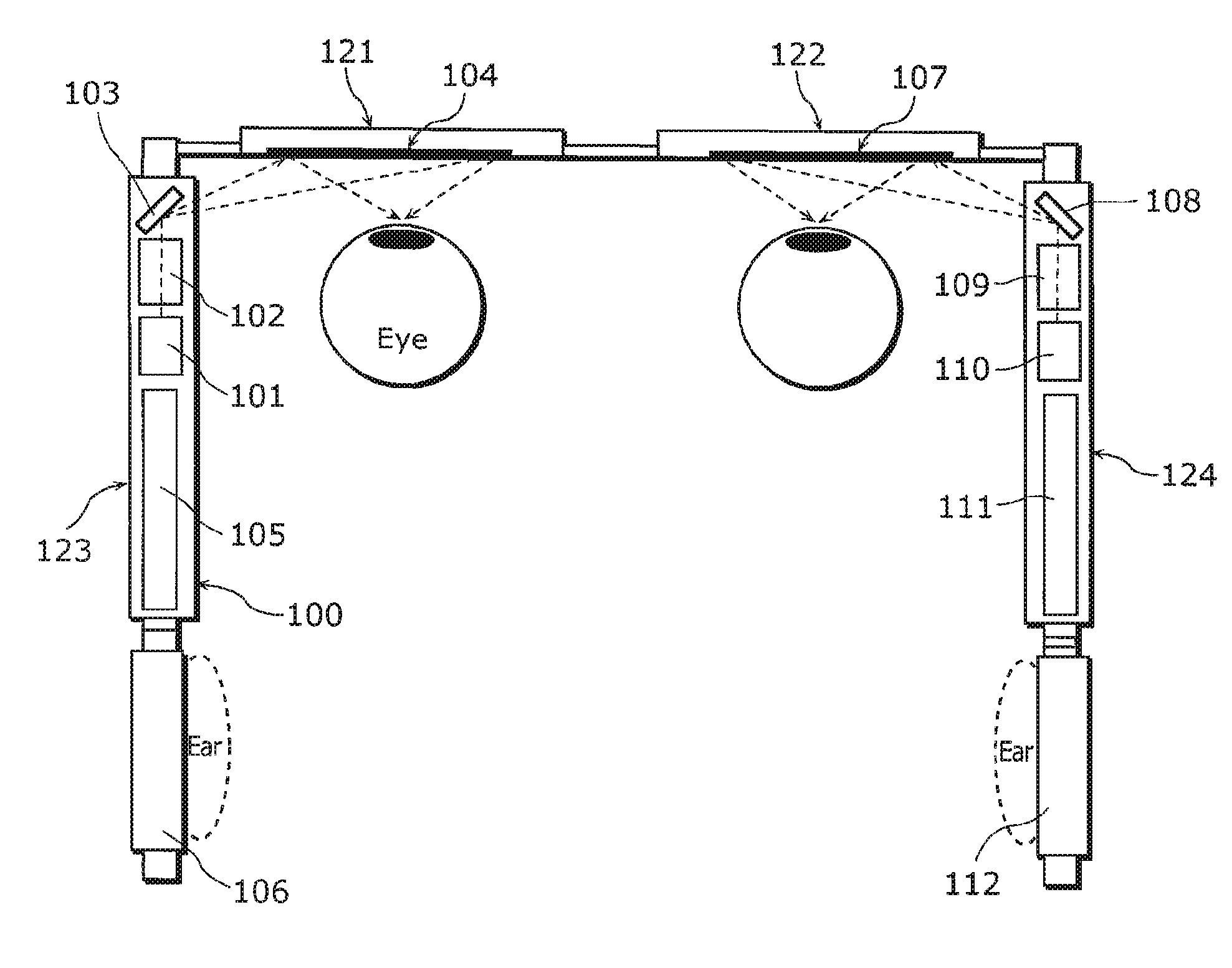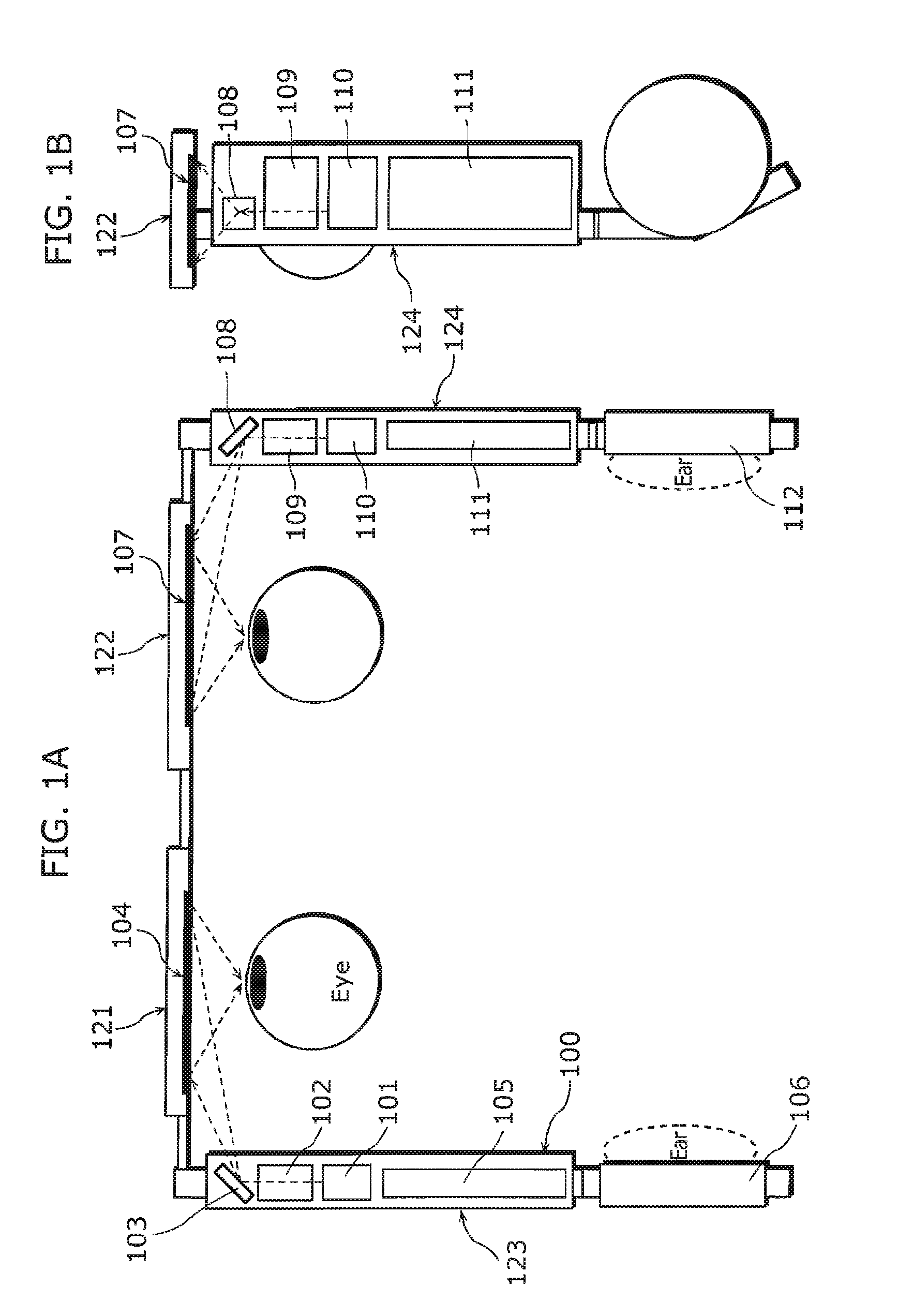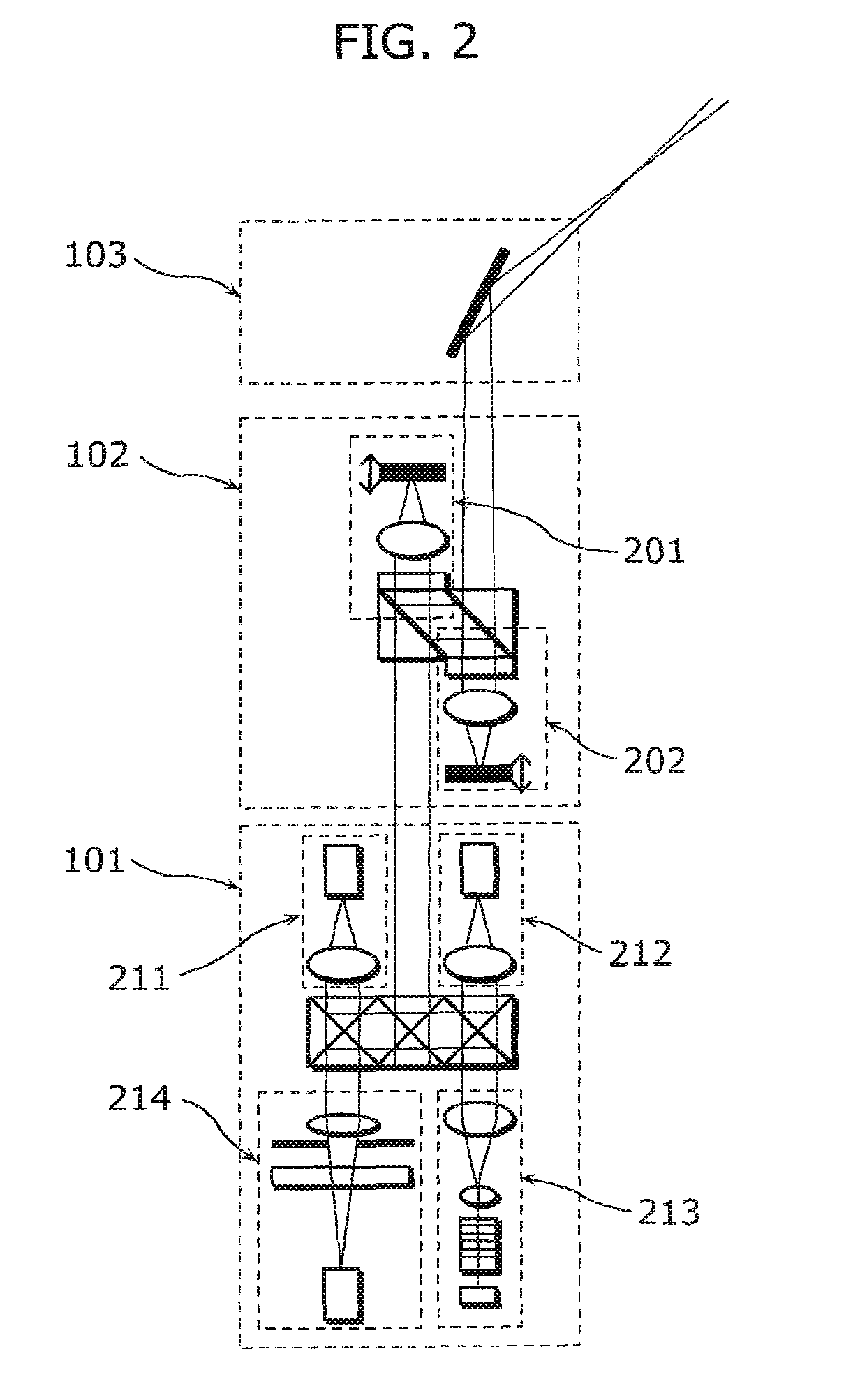Display apparatus
- Summary
- Abstract
- Description
- Claims
- Application Information
AI Technical Summary
Benefits of technology
Problems solved by technology
Method used
Image
Examples
embodiment 1
[0191]Described hereinafter with reference to FIGS. 1A, 1B, 2 and 3 is an eyeglass-type HMD as a beam-scan display apparatus (also referred to as “image display apparatus” or “display apparatus”) according to Embodiment 1 of the present invention. It is to be noted that FIG. 1A is a plan view of the display apparatus, FIG. 1B is a side view of the display apparatus, FIG. 2 is a detail view of a portion of FIG. 1A, and FIG. 3 is a functional block diagram of the display apparatus.
[0192]The eyeglass-type HMD according to Embodiment 1 includes: lenses 121 and 122 provided in front of the user's left and right eyes, respectively; and a pair of temples 123 and 124 each having one end connected to a corresponding one of the lenses 121 and 122 and the other end fixed to the user's temporal region.
[0193]As shown in FIGS. 1A, 1B, and 2, the display apparatus includes: light sources 101 and 110 which emit beams for drawing each of pixels constituting a display image; wavefront shape change un...
embodiment 2
[0244]With reference to FIG. 7, a display apparatus 10 according to Embodiment 2 of the present invention shall be described. FIG. 7 is a schematic structural diagram of the display apparatus 10.
[0245]The display apparatus 10 in Embodiment 2 includes: image output units 3R and 3L which output emitted beams 2; a deflection unit 15 which deflects the emitted beams 2 toward the user's eyes 8R and 8L (beam focusing positions 11R and 11L); control units 5R and 5L which control the image output units 3R and 3L; and an overall control unit 6 which performs overall control over the processing of the control units 5R and 5L. It is to be noted that the image output units 3R and 3L respectively include light sources 1R and 1L, scan units 4R and 4L which two-dimensionally scan the emitted beams 2 emitted from the light sources 1R and 1L, and a light detection unit 17. Further, the deflection unit 15 includes hologram mirrors 15R and 15L provided at positions facing the right and left eyes 8R an...
embodiment 3
[0277]With reference to FIG. 12, a display apparatus 30 according to Embodiment 3 of the present invention shall be described. FIG. 12 is a schematic structural diagram of the display apparatus 30. It is to be noted that the basic structure of the display apparatus 30 is common to that of the display apparatus 10 illustrated in FIG. 7. Thus, a detailed description of the common aspects shall be omitted, and the following description centers on different aspects.
[0278]With the display apparatus 30 according to Embodiment 3, the hologram mirrors 15L and 15R project, onto the user's eyes 8L and 8R, respectively, images with different visual fields 31. It is to be noted that elliptical areas surrounded by broken lines in FIG. 12 represent the visual fields 31, one being a left visual field 31L and another being a right visual field 31R. Here, the pupil-to-pupil distance 9 is equal to the focus-to-focus distance 12, which is a distance between the beam focusing positions 11L and 11R.
[027...
PUM
 Login to View More
Login to View More Abstract
Description
Claims
Application Information
 Login to View More
Login to View More - R&D
- Intellectual Property
- Life Sciences
- Materials
- Tech Scout
- Unparalleled Data Quality
- Higher Quality Content
- 60% Fewer Hallucinations
Browse by: Latest US Patents, China's latest patents, Technical Efficacy Thesaurus, Application Domain, Technology Topic, Popular Technical Reports.
© 2025 PatSnap. All rights reserved.Legal|Privacy policy|Modern Slavery Act Transparency Statement|Sitemap|About US| Contact US: help@patsnap.com



